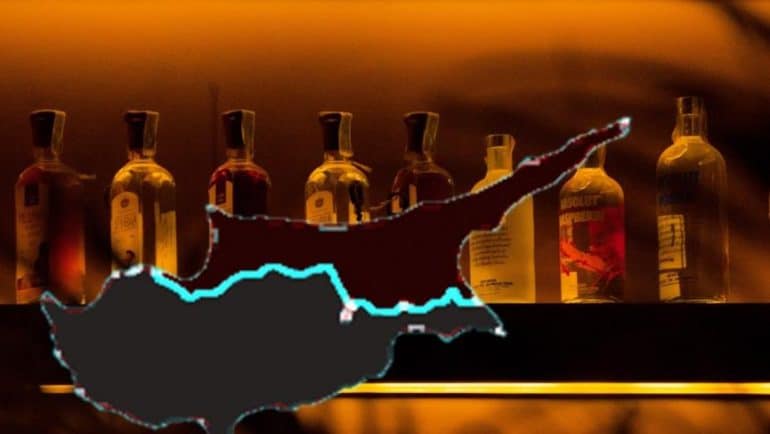The phenomenon of the illegal trafficking of alcoholic beverages from the occupied to the free areas seems to be taking on frightening proportions, with market actors strongly expressing their concerns about the serious effects caused.
How the "system" works
According to well-informed sources of Economy Today, the largest quantities concern specific brands of vodka and whiskey, for mass consumption, which are initially received by Turkish Cypriots in the territories occupied by Turkey.
As they explain, after receiving the goods from the Turkish suppliers, the traffickers find "holes" in the 300 km long "Green Line" and carry out the transactions.
The same sources state that the products are sold mainly to Greek Cypriots who either maintain the same points of sale of alcohol in the free zones, or resell them, distributing them to various points of sale or catering places in the free zones.
Series of effects
The ramifications of this illegal activity are multi-layered, as experts in the retail sector pointed out to Economy Today.
In particular, they focused on the creation of conditions of unfair competition, underlining that the now uncontrolled situation has led to a loss of revenue for legal importers.
At the same time, another dimension resulting from the continuation of this practice is the loss of significant tax revenues for the state.
According to Eurostat data, Cypriots spent 2021% of GDP and 1,2% of their total expenditure on alcoholic beverages in 1,9, i.e. approximately €290 million.
Therefore, it is easy to understand the magnitude of the damage that the inability to prevent the phenomenon of non-collection of taxes will entail for the state.
The “Pernod Ricard” factor
The increase in the smuggling of alcoholic beverages from the occupied territories comes in connection with another development, since the French giant Pernod Ricard is added to the picture and various publications that have been released in the previous months.
As reported by Politico(link is external), it is the second largest beverage company in the world with many important brands in its portfolio. Chivas Regal, Jameson, Ballantine's, Beefeater Gin, Absolut Vodka and Havana Club Rum are just a few of them.
Last April, the company was heavily criticized when it was revealed that it had moved "discreetly" to restart its exports to Russia, after it had stopped them in the wake of the invasion of Ukraine.
The backlash then sparked a boycott movement against its products, with the company eventually ceasing exports to Russia under pressure.
bae-presentation.png
This left it, however, with a surplus of stocks, with Economy Today's sources "pointing" to the holdings as an ideal field, given the absence of control, to divert quantities originally intended for the Russian market.
The Green Line Regulation is violated
Today, specific goods coming from the occupied territories of the Republic of Cyprus, which are specified in the Green Line Regulation, are allowed to pass through the approved crossing points.
Alcoholic beverages, however, are not included in the list of products. Therefore, any movement of them constitutes a violation of the Green Line Regulation.
Besides, last June, the European Commission in the annual report it issued on the implementation of the Green Line regulation in Cyprus, recorded that "the smuggling of alcohol and goods that violate intellectual property rights increased".
At the same time, in the report, the Commission noted that trade through the Green Line in 2022 increased by 138% and reached a record value of more than €14.6 million.
Impossible to separate from consumers
In the case of alcoholic beverages, according to people employed in the catering sector who did not want to be named, there is no way for consumers to distinguish whether it is a product that was channeled from the occupied.
This fact creates additional concerns since many times the storage conditions of these products play a role both in terms of quality, as well as in the safety and health of consumers.
EconomyToday
